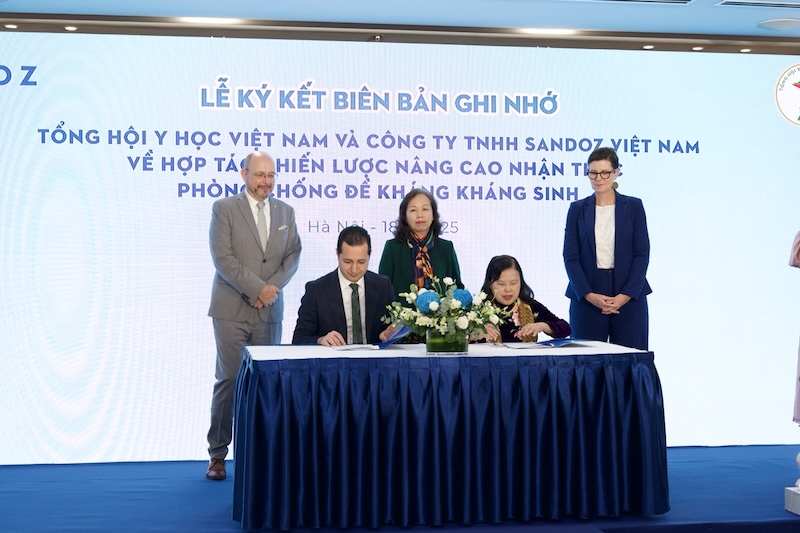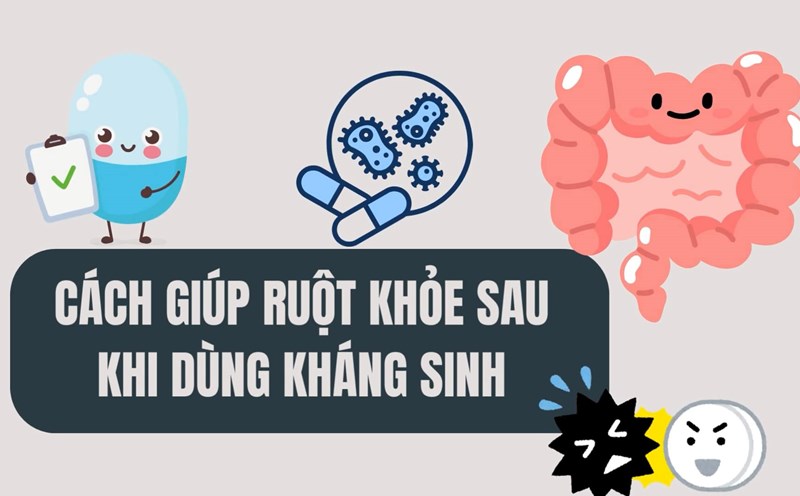Antibiotic resistance - a huge cost burden for the health system and the economy
Dr. Angela Pratt, Chief Representative of the World Health Organization (WHO) in Vietnam, shared her personal story at the signing ceremony between the Vietnam Medical Association and Sandoz Vietnam held in Hanoi on November 18.
According to Dr. Angela Pratt, the World Health Organization has identified antibiotic resistance (AMR) as one of the 10 biggest threats to social health globally. AMR can reverse decades of medical advances, turning common infections into life-threatening pathogens.
"We estimate that each year, AMR causes at least 1.3 million deaths worldwide, and at the same time creates a huge cost burden for the health system and the economy.
For me, this issue is also personal. For the past few weeks, one of my two five-year-old daughters has been struggling with a serious resistant infection, and this is not the first time. Therefore, I understand the fear, stress and pressure that families have to go through when a loved one has an infection, which seems simple but is extremely difficult to treat" - Dr. Angela Pratt shared.
According to her, like many other countries in the world, the challenges and impacts of AMR in Vietnam are very significant. However, the good news is that in recent years, Vietnam has recorded many important advances, including the assignment of the MSA as the National Coordination Center - demonstrating the importance of inter-sectoral coordination in a complex policy issue; Strengthening the national monitoring system, including: Establishing 3 national reference laboratories and the AMR monitoring network at 57 hospitals nationwide. This is a key factor because we cannot control anything without measuring it; and finally, build a National Action Plan on AMR for the period 2026-2030, expected to be published this month. Thus, despite many advances, Vietnam as well as any other country in the world still has a lot of work to do.

Combating antibiotic resistance is a common responsibility of the whole society
Dr Angela Pratt believes that one of the upcoming key priorities is to strengthen multi-sector cooperation, because AMR is not an issue that an individual organization or group of individuals can solve alone. However, multi-sector cooperation is easier said than done.
"From the perspective of a WHO representative, I personally believe that the pharmaceutical industry plays a key role in the fight against AMR.We need pioneering businesses to continue investing in R&D to develop the new generation of antibiotics; and we need the entire medical industry to maintain a commitment to sustainable production, strengthen antibiotic use management, data sharing, and cooperation to ensure stable quality and access to essential drugs" - Dr. Angela Pratt emphasized.
According to Associate Professor, Dr. Nguyen Thi Xuyen - former Deputy Minister of Health, President of the Vietnam Medical Association: The situation of unreasonable abuse and use of antibiotics is still quite common, from buying medicine without a prescription, to the habit of using drugs without enough doses, or sharing medicine with others.All of these behaviors, no matter how small, are contributing to the effectiveness of antibiotics.
Through this cooperation agreement, the two sides will jointly implement many meaningful activities, including: Training programs, scientific seminars for medical and pharmaceutical teams on the reasonable use of antibiotics; community communication campaign to help people understand and use antibiotics correctly;
At the same time, it strengthens connections and cooperation with domestic and international organizations and experts in the field of infection control and antibiotic use, through participation in professional conferences and forums.
"The fight against antibiotic resistance cannot be successful if only one industry, one organization or one group of individuals act alone. This is a common responsibility of the whole society. I believe that, with the spirit of cooperation, responsibility and consensus of our actions today, these first steps will create a solid foundation for a safer and more sustainable future for the Vietnamese people" - Associate Professor Xuyen emphasized.











